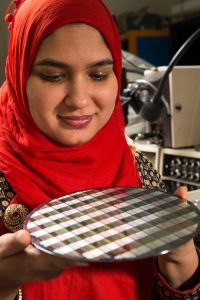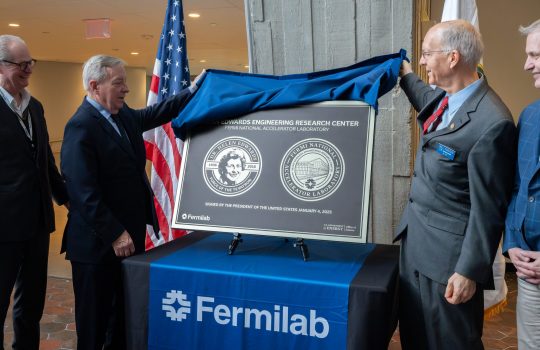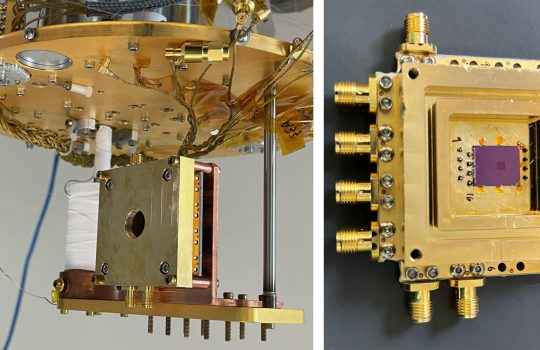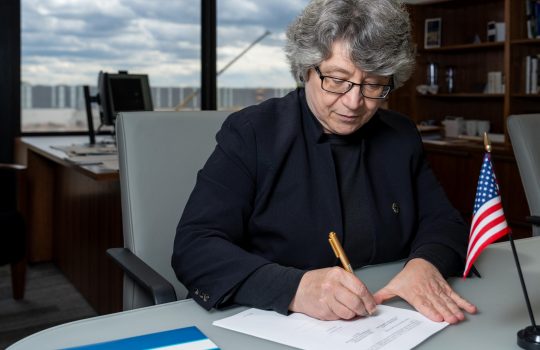How long have you worked at Fermilab?
I’ve been here seven and a half years. I started in July 2009.
What do you do here at Fermilab?
I design application specific integrated circuits. Basically, I create electronics for detectors. You can’t just buy those electronics off the shelf. Most detector electronics need to survive in harsh environments. There could be radiation or extreme temperatures, and that means the electronics have to be tough enough to withstand it and still perform admirably often for the whole lifespan of an experiment. So we make them by harnessing technology being developed at a rapid pace for the consumer goods market – mainly mobile phones – and adapting them to our purpose.
How did you get into this kind of work?
I did my basic degree in telecommunication and my master’s in analog circuit design. At that point it seemed natural to go into the mobile phone industry, but most of the positions I interviewed for were mainly focused on setting up networks and using existing technology instead of developing it.
I wanted to develop and design analog integrated circuits. I got into that when I started as a graduate engineer at Rutherford Appleton Laboratory in the UK.
As I wanted to move to the U.S., I knew I wanted to go to Fermilab, because Fermilab was getting into this really novel technology: 3-D integrated circuit designs. That was a really intriguing area with a lot of scope and possibilities, because there were a lot of different ways to do this, and it was just being developed. Well, and now I am here and working on this and other technologies.
What does a typical workday look like for you?
Most of the day I sit in front of a computer. But what I do varies a great deal over the duration of our projects. Typically, a project tends to be one or two years long. So depending on the phase of the projects, I could be working with scientists to develop a solution or designing circuits, debugging them, testing them.
What would you consider the most exciting part of your job?
Everything – but if I need to pick one, I pick “coming up with the initial idea for a working solution for a new project.” Often there are many ways of solving a problem, but doing something new and coming up with a simple and easy solution to a critical problem is always fulfilling.
In our group we are encouraged and have the independence to suggest solutions and test our own ideas. It is just great to be creative. The exciting part is when the idea works and gets applied in a detector or an experiment.
What’s something people might not know about you?
I love traveling. I have traveled to all continents except Africa. In 2012 I made an expedition cruise around the Antarctica peninsula.
I also love gardening. But those two passions don’t mix well: One year, I got a plot at Fermilab, which I didn’t get around using because I was traveling a lot that summer. Now I have a small vegetable garden in my backyard, which makes taking care of it easier.




